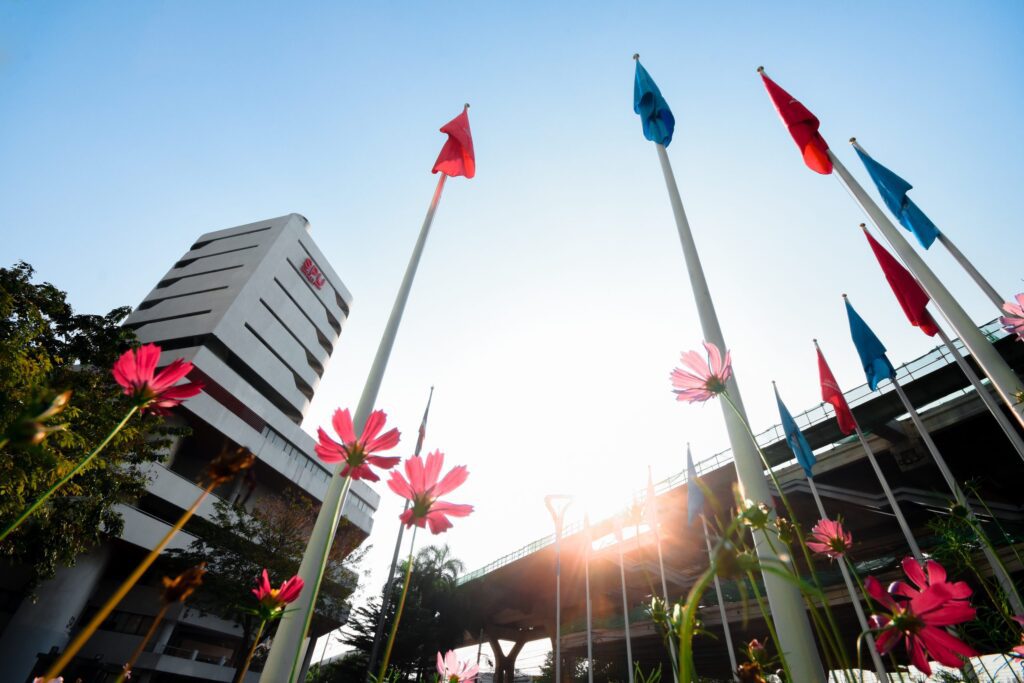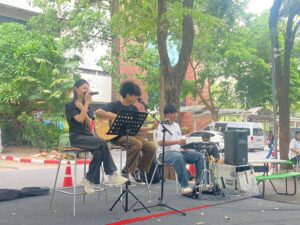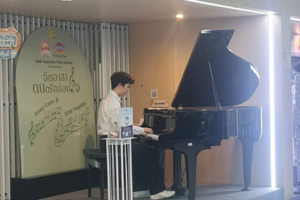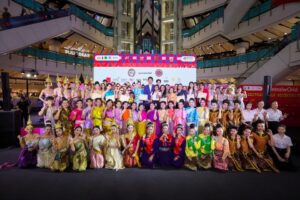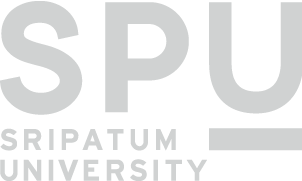ในยุคที่มหาวิทยาลัยทำหน้าที่เป็นกลไกการเปลี่ยนแปลงทางสังคม มหาวิทยาลัยศรีปทุม (SPU) ได้แสดงบทบาทเชิงรุกผ่านโครงการ “เครือข่ายกับหน่วยงานภายนอกด้านศิลปวัฒนธรรม” ซึ่งสะท้อนการมีส่วนร่วมโดยตรงต่อ SDG 11: เมืองและชุมชนที่ยั่งยืน โดยเฉพาะ ข้อย่อย 11.4 ที่เน้นการปกป้องและส่งเสริมมรดกทางวัฒนธรรมของโลก
กิจกรรมที่จัด ณ เซ็นทรัลเวิลด์ กรุงเทพฯ ไม่ได้เป็นเพียงการเฉลิมฉลองประเพณีเท่านั้น หากแต่เป็นการดำเนินการในเชิงวิชาการและสังคม นักศึกษาและบุคลากรจากศูนย์ศิลปวัฒนธรรมของ SPU ได้ร่วมมือกับมหาวิทยาลัยอื่นและภาคเอกชนในการจัดแสดงศิลปวัฒนธรรมจากภูมิภาคต่าง ๆ ของไทยในช่วงเทศกาลสงกรานต์ ซึ่งเป็นการแสดงออกถึง “การแปล SDGs สู่การปฏิบัติในระดับท้องถิ่น (SDG localization)” ได้อย่างชัดเจน
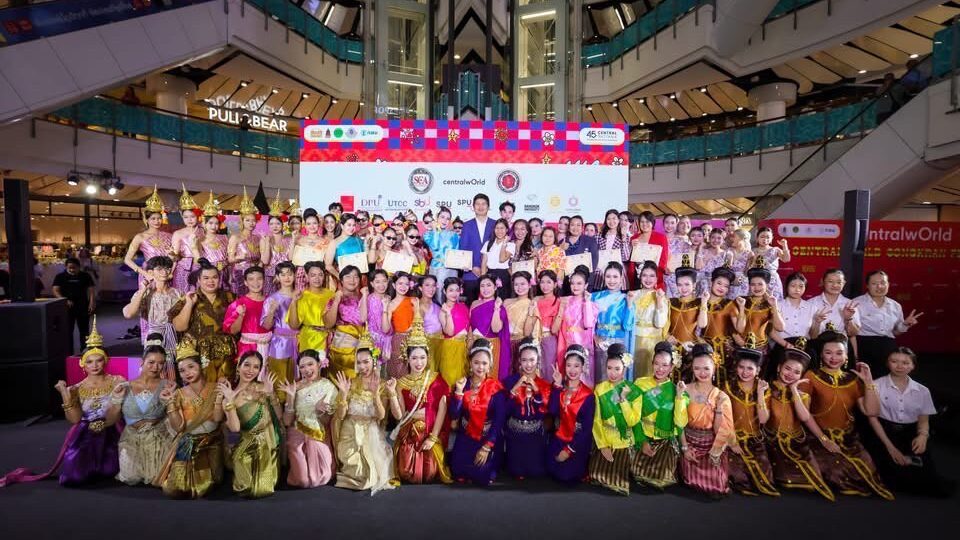
โครงการนี้ยังสนับสนุน SDG 4: การศึกษาที่มีคุณภาพ โดยเฉพาะ ข้อย่อย 4.3 (โอกาสในการเรียนรู้ตลอดชีวิต) และ ข้อย่อย 4.7 (การศึกษาที่ส่งเสริมความยั่งยืน และความเข้าใจทางวัฒนธรรม) การให้นักศึกษา—โดยเฉพาะผู้ได้รับทุนความสามารถพิเศษทางศิลปวัฒนธรรม—ได้มีบทบาทในกิจกรรมจริง คือการเรียนรู้ผ่านประสบการณ์ ส่งเสริมความเป็นพลเมือง และเพิ่มความเสมอภาคทางการศึกษา ตามแนวทางของ SDG 10.2
นอกจากนี้ การดำเนินการร่วมกับศูนย์การค้าเซ็นทรัลเวิลด์ มหาวิทยาลัยสยาม และหน่วยงานภายนอกอื่น ๆ สะท้อนถึง SDG 17: ความร่วมมือเพื่อการพัฒนาที่ยั่งยืน โดยตรง ตาม ข้อย่อย 17.17 ที่เน้นการสร้างเครือข่ายหลากหลายภาคส่วนเพื่อการพัฒนาที่ยั่งยืน
อีกหนึ่งจุดเด่นที่ไม่อาจมองข้าม คือมิติเรื่อง “ความเท่าเทียมทางเพศ” โดยโครงการนี้มีผู้บริหารและที่ปรึกษาเป็นสตรี สอดคล้องกับ SDG 5.5 ซึ่งส่งเสริมการมีส่วนร่วมของผู้หญิงในบทบาทผู้นำอย่างเท่าเทียม
บทสรุป:
โครงการเครือข่ายศิลปวัฒนธรรมของ SPU คือตัวอย่างของการที่สถาบันอุดมศึกษาสามารถเชื่อมโยงบทบาทด้านการศึกษา การพัฒนาชุมชน และการสร้างความยั่งยืนอย่างบูรณาการ ผ่านการมีส่วนร่วมของนักศึกษาและภาคีเครือข่าย โครงการนี้ไม่เพียงสอดคล้องกับแนวทางการประเมินของ Times Higher Education Impact Rankings แต่ยังตอกย้ำตำแหน่งของ SPU ในฐานะสถาบันที่ขับเคลื่อน SDGs อย่างเป็นรูปธรรมทั้งในระดับชาติและระดับโลก
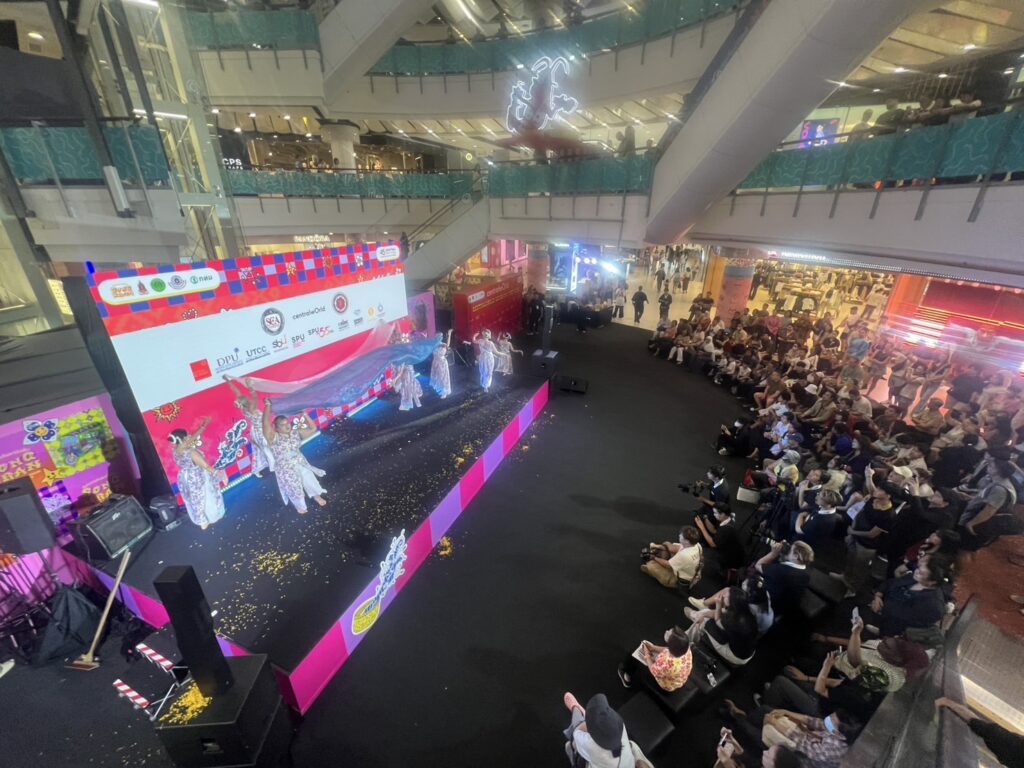
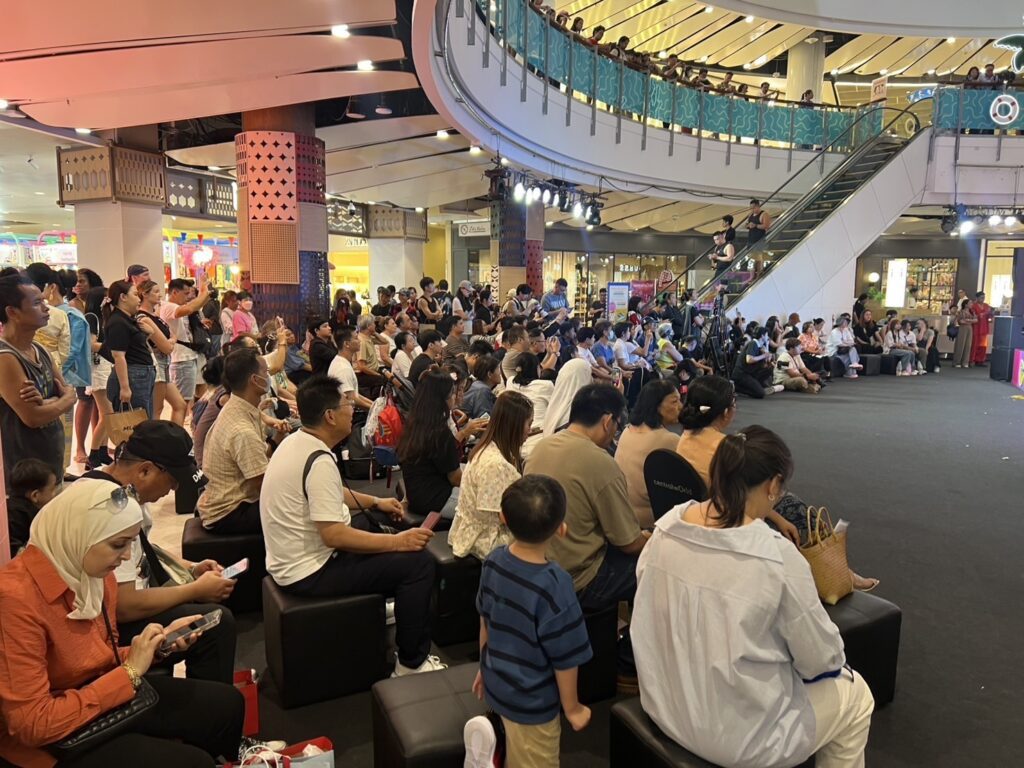
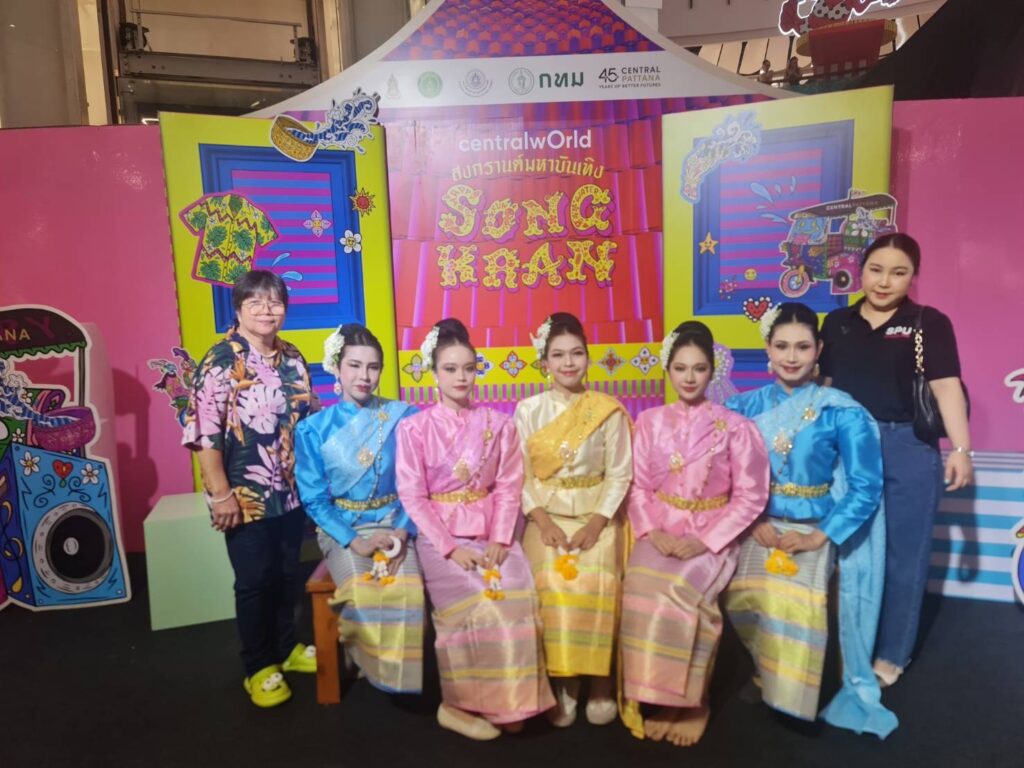
SPU Students Celebrate Thai Cultural Heritage at CentralWorld
In an era where universities are catalysts for social transformation, Sripatum University (SPU) has exemplified this role through its recent project titled “Cultural Network with External Agencies.” This initiative reflects a direct contribution to SDG 11: Sustainable Cities and Communities, specifically Target 11.4, which promotes efforts to protect and safeguard the world’s cultural and natural heritage.
The event, held at CentralWorld Bangkok, was more than a celebration of Thai tradition—it was an academic and societal intervention. Students and faculty from SPU’s Center for Arts and Culture collaborated with other universities and private sectors to deliver public performances of regional Thai arts during the Songkran festival. These performances were not only symbolic representations of Thailand’s cultural richness but also practical examples of SDG localization in action.
The project also supports SDG 4: Quality Education, particularly Target 4.3 (lifelong learning opportunities) and Target 4.7 (education for sustainable development and cultural awareness). By involving students as active participants—especially those under cultural talent scholarships—the university enabled experiential learning, enhanced civic responsibility, and promoted inclusive educational access in line with SDG 10.2.
Moreover, the collaboration across sectors aligns with SDG 17: Partnerships for the Goals. By connecting with CentralWorld, Siam University, and other cultural stakeholders, SPU operationalized Target 17.17, which emphasizes multi-stakeholder partnerships for sustainable development.
Finally, it is important to highlight the gender dimension of leadership within the project. With female academics managing and advising the initiative, this directly responds to SDG 5.5, advocating women’s full participation and equal opportunities for leadership.
Conclusion:
SPU’s Cultural Network project is a model of how academic institutions can bridge the gap between education, community development, and sustainability. Through arts-based civic engagement, SPU not only nurtures students’ competencies but also promotes the resilience of urban communities. The university’s approach echoes the evaluative criteria of the Times Higher Education Impact Rankings, and positions SPU as a leading agent for SDG implementation in Thailand and beyond.

